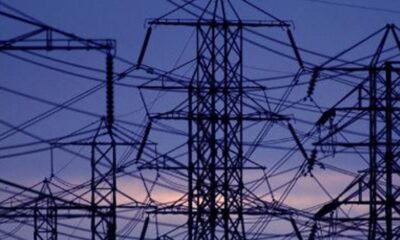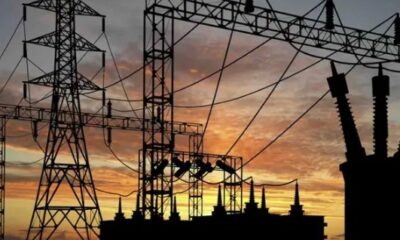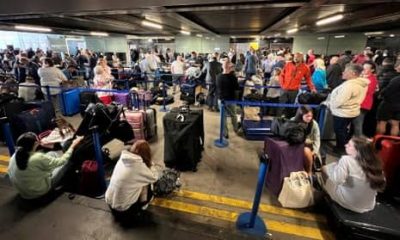News
ACF calls for state of emergency on power outage
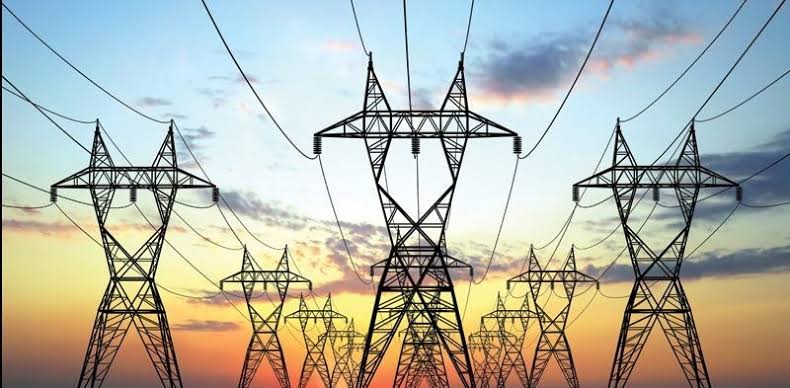
By Francesca Hangeior
The Arewa Consultative Forum (ACF) has called for a State of Emergency on power outage, lamenting that over the past week and still counting, most parts of the northern states of Nigeria have been battling with sustained electric power supply outages, leading to near total paralysis in economic and social activities in the region.
The forum stated that the situation has led to growing generalised frustration of the populace.
National Publicity Secretary of the ACF, explained that “the situation appears even more dire and frightening as statements from officials charged with the responsibility for power supply, the Transmission Company of Nigeria (TCN) suggest that the problem is likely to persist interminable due to technical and security challenges.
Not unexpectedly, the problem has been a subject of intense debate and lamentations in the media, neighbourhood gatherings, business premises, etc.”
” The smallest of small businesses (such as telephone recharge points, barbing salons, food processors, drinks sellers, etc.), from which millions eke out a daily living are unable to operate. It has also been the same with medium-scale enterprises (such as rice mills, bread and confectionary bakers), that do not have alternative sources of power or cannot afford associated high fuel costs. “
“Home and office operate without cooling and heating and at night are thrown into the medieval dark ages of the primitive, pre-civilisation era. ACF notes that there has emerged, and growing, palpably evidence that it is to the utter consternation and disappointment of people that the problem appears to attract only deafening silence, suggesting indifference, from those who are constitutionally expected to respond with care and concern.”
“At extremes, not a few insinuate a deliberate strategy, among other tendencies, by the Federal Government to continue to socioeconomically shortchange and cripple the North. Such conspiracy hypotheses or theories abound in part because there has been no reaction from the Federal Government, the Minister for Power, elected officials including state governors, nor even feeble motions from state assemblies, such as to give the impression that the country’s leaders as little as care about the basic security and welfare of the people on whose behalf government presides over the nation. “
“An exception to the muteness has been the brave voices of some members of the National Assembly, brave because muteness has since become entrenched in the behaviour of elected personalities. The problem, rather serendipitously, also exposes the gross inequities in power supply generation and distribution nationwide. While the North generates substantial electricity power, it is ironically allocated the least in supply. It just does not make any sense that Lagos alone has eight (8) sub-stations, while the whole of the northern states combined, harbouring more than half of Nigeria’s total population has only THREE (3) sub-stations at Jos, Kaduna and Kano.”
” The question needs to be posed is if ours an Animal Farm analogy – those who substantially are allocated the least. The situation at hand is a portent national security threat, against which the silence, especially, of public officials amounts to a phenomenal textbook illustration of the abdication of responsibility, as unacceptable as can be.”
” To suggest that the problem has its roots in what had been done or not in the past is merely to make excuses. To lamely offer unintelligent excuses – excuses, not reason – that the problem cannot be immediately addressed due to banditry along power supply lines is to surrender to the terroristic criminals. It is inconceivable that Nigeria’s fairly vast array of security agencies, with their humongous budgetary allocations, cannot dislodge and subdue the rag-tag bandits, reclaim and dominate territory. “
“On this score, it is disappointing that the National Assembly is yet to publicly demand accountability over this unacceptable scenario. It also amounts to unadulterated and untenable obfuscation, that the TCN (and the FGN) cannot marshal the necessary human, technical and other material to address the situation at hand with despatch.
In the event and without equivocation therefore, ACF calls on the FGN and all those concerned to rise to the occasion by declaring a state of emergency on the problem before it snowballs into a crisis. This threat to national security should forthwith be treated with the seriousness it deserves.”
“The problem be addressed with the honest URGENCY it deserves; calls for an immediate review of power supply allocation in the country since all consumers pay for it. It is unacceptable that while the North acts as a candle that supplies light, it is being melted down and plunged into darkness. This ought to and must change with immediate effect in the interest of national stability, fairness and equity, and Calls on elected northern state governors and, members of the National Assembly representing constituencies in the northern states to speak out more vehemently and stridently demanding action on the problem as outlined above.”
News
Snub story on removal of Rivers Sole Administrator, it’s FAKE-Chief Registrar
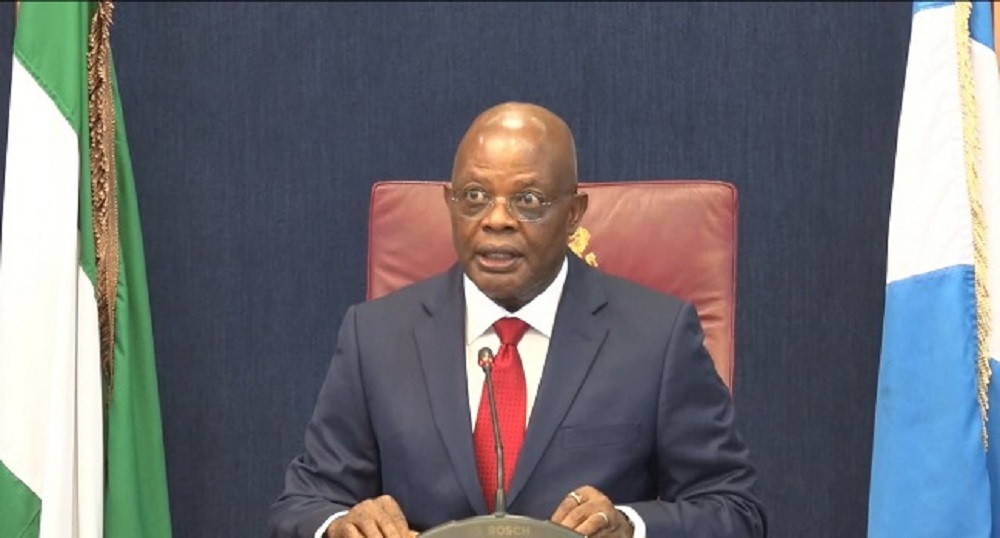
By Emmanuel Agaji
The Rivers State High Court Chief Registrar, David D Thua-Maduenyi has rubbished speculations suggesting that Rivers Sole Administrator has been removed by the state’s High Court.
Naijablitznews reports this was contained in a statement personally signed by the Chief Registrar saying:
“My attention has been drawn to an online news report with the caption “BREAKING
NEWS: Governor Sim Fubara secures Court victory over Wike and Tinubu –
Federal High Court Orders Sole Administrator to vacate Government House”,
authored by one Joy Musa published by 247 ureports on Tuesday, 15th April, 2025.
“Ordinarily, I would not have bothered myself with any refutal, but for the
mischievous mention of the name of Hon. Justice Boma Diepriye which appears
synonymous with Hon. Justice Boma Diepiri of the Rivers State High Court in
paragraph 4 of the report thus:
“Justice Boma Diepriye, who presided over the case, ruled that the
appointment of a sole administrator to oversee the affairs of a state with
a sitting, democratically elected governor is “illegal, null and void…”
“In view of the above, I wish to state as follows:
Hon. Justice Boma Diepiri is not a Judge of the Federal High Court but a
Judge of the Rivers State High Court, and is already on Easter Vacation,
which commenced on Monday, 14th April, 2025.
“For the period of the Easter Vacation, only the vacation Judge is sitting:
and Hon. Justice Boma Diepiri is not the Vacation Judge.
“The mention of the name of Hon. Justice Boma Diepriye which is similar
with Hon. Justice Boma Diepiri of the Rivers State High Court is not only
false, but misleading, and clearly exposes the crass ignorance of the
reporter; as the Federal High Court is different from Rivers State High
Court.
“No State High Court gave any order(s) relating to or concerning the
subject matter as captioned in the online news.
“It is regrettable that some bloggers and online news reporters have traded
professionalism on the altar of pecuniary gains they seek to derive from traffic on
their social media handle and web pages.
“Henceforth, the Judiciary enjoins the general public to seek clarification on any
news report concerning the Court and official of the Court before publication.
“The general public is advised to clearly ignore the false and misleading publication.
News
Rivers LG administrator cautions workers to avoid any form of negligence in their duties
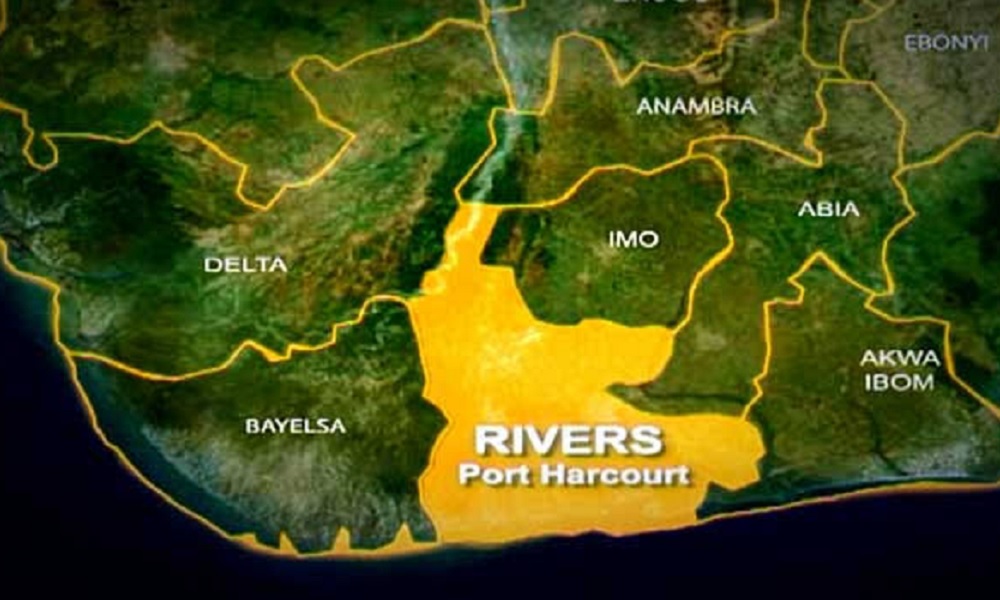
The newly appointed administrator of Andoni Local Government Area of Rivers State, Mr Atajit Francis has warned staff of the council against negligence to duty.
Francis handed down the warning at Ngo, the council headquarters, shortly after resumption of duty.
The administrator who also met with the Head of the Local Government Administration said that the third tier of government requires diligence to deliver people-oriented services.
Francis further said that under his watch, underperformance and dereliction of duty would not be condoned.
He stated, “While we are on the saddle, we shall reward diligence and hard work. We urge staff to work towards achieving set goals.
“My mandate is specified, they include sanitation, environmental development, job creation, primary education and primary health care.
“The essence is to positively impact the lives of our people, knowing that the local government is the closest tier of government to the people.”
Insisting that transparency and integrity were critical to effective grassroots development and service delivery, he said, “So I expect all staff to uphold the highest ethical standards and accountability in the discharge of their duties.”
Recall that the Rivers State’s sole administrator, Vice Admiral Ibok-Ete Ibas (rtd) recently appointed administrators to oversee the affairs of the 23 local government councils in the state after he suspended the Heads of Local Government Administration appointment by Governor Siminalayi Fubara.
News
Newcastle thrash Crystal Palace to go third in Premier League

Newcastle soared up to third in the Premier League with a 5-0 thrashing of Crystal Palace on Wednesday to close in on a return to the Champions League next season.
Jacob Murphy, Harvey Barnes, Fabian Schar and Alexander Isak were on target for the Magpies, with Marc Guehi also scoring an own goal, as Newcastle made light of the absence of manager Eddie Howe due to pneumonia.
A sixth consecutive victory in all competitions opens up a five-point lead for Newcastle over sixth-placed Chelsea, with a place in the top five good enough for Champions League qualification.
Palace remain down in 12th with their season now fully focused on an FA Cup semi-final date with Aston Villa later this month.
Newcastle travel to Villa on Saturday in a huge clash in the battle for European places.
But the League Cup winners are pulling away from the chasing pack for a top-five finish, buoyed by ending their 70-year wait for domestic silverware last month.
“That gave us huge confidence,” said Newcastle assistant manager Jason Tindall, who is was deputising for Howe, of lifting the League Cup.
“We were able to enjoy that for a period of time but we knew what our objectives were for the remainder of the season – to finish as high up the league table as possible.
“The manager always leads and sets that example of never switching off. They’ve gone out there, been really consistent and delivering performances.”
Isak wasted two big early chances to open the scoring when he was firstly denied by a fine Dean Henderson save and then headed over from Murphy’s enticing cross.
Newcastle only had to wait until the 14th minute to open the scoring when Murphy blasted in a remarkable finish from a narrow angle.
– Eze fluffs penalty –
Palace were gifted the chance to get back into the game when goalkeeper Nick Pope rushed off his line and wiped out Chris Richards in his attempt to punch the ball clear.
After a lengthy VAR check, a penalty was finally awarded.
However, Eberechi Eze’s lackadaisical spot-kick was easily collected by the relieved Pope.
Within a minute, Newcastle had doubled their lead when Guehi turned into his own net as he attempted to block Barnes’ cross towards Isak.
The England defender has been regularly linked with a move to Tyneside and has now scored an own goal in each of Palace’s two meetings with Newcastle this season.
“There are some days where nothing works, and at the same time everything worked for Newcastle,” said Palace boss Oliver Glasner.
“We couldn’t deal with their intensity and directness and pace.”
It went from bad to worse for the visitors as Barnes continued his fine form with a composed finish for his fourth goal in three games.
Murphy’s free-kick was then flicked in by Schar to make it 4-0 before the break.
The normally lethal Isak continued to be frustrated in front of goal as Henderson spread himself to deny another effort from point-blank range early in the second half.
However, the Swedish striker finally got his 25th goal of the season with a fine finish from outside the area just before the hour mark.
-
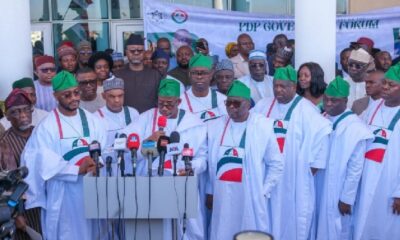
 News19 hours ago
News19 hours agoPDP governors declare support for Tinubu
-

 News23 hours ago
News23 hours agoEx-finance minister rearrested in new fraud probe
-
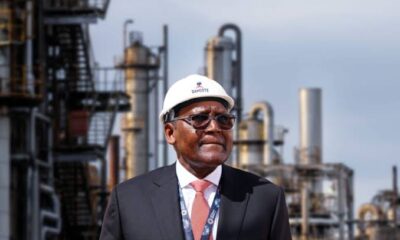
 News20 hours ago
News20 hours agoHope for Nigerians as Dangote refinery slashes petrol price again
-
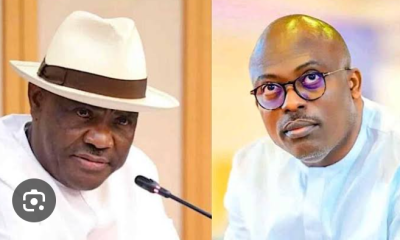
 News22 hours ago
News22 hours agoFubara: How can I forgive somebody who never requested for it– Wike
-

 News20 hours ago
News20 hours agoRivers Emergency Rule: Abbas inaugurates 21-member panel
-
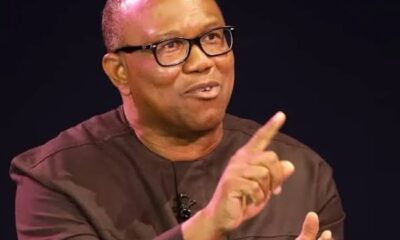
 News22 hours ago
News22 hours agoPeter Obi asks president Tinubu to suspend France trip
-

 News19 hours ago
News19 hours agoN1.3trn CBEX Scam: EFCC caution Nigerians against Ponzi Schemes
-

 News6 hours ago
News6 hours agoFG expresses sympathy for CBEX victims, urges a united effort to combat Ponzi schemes


